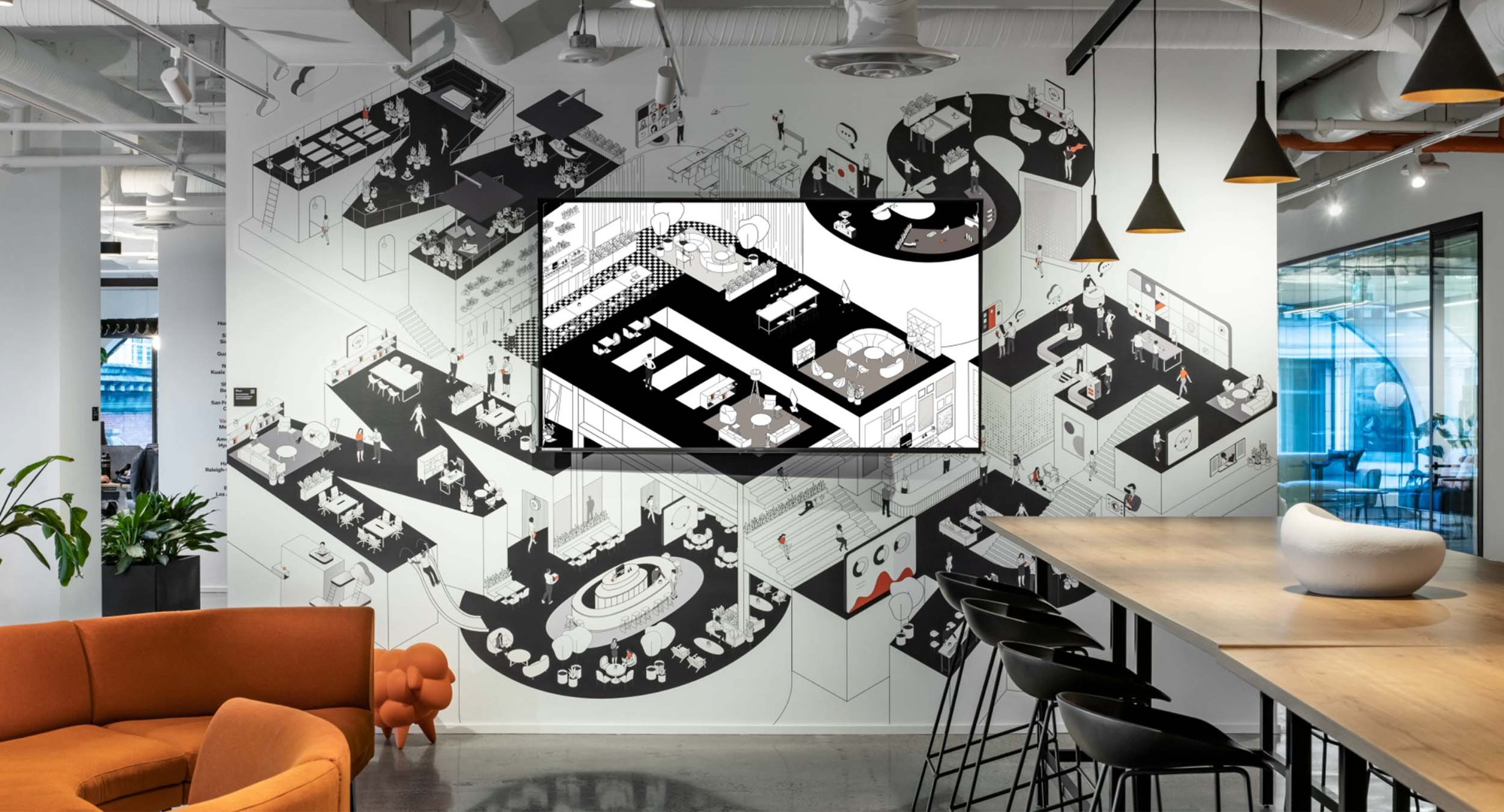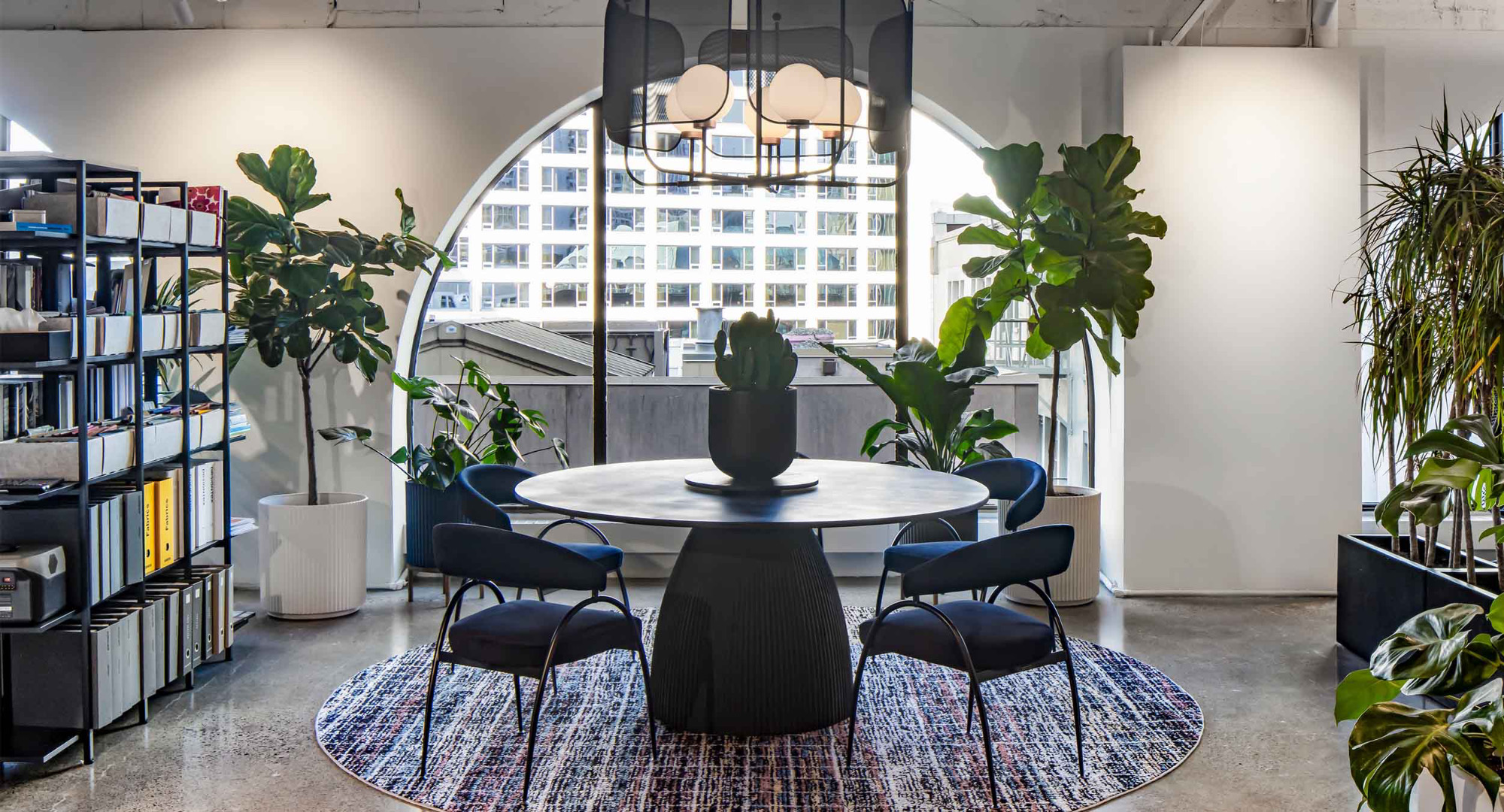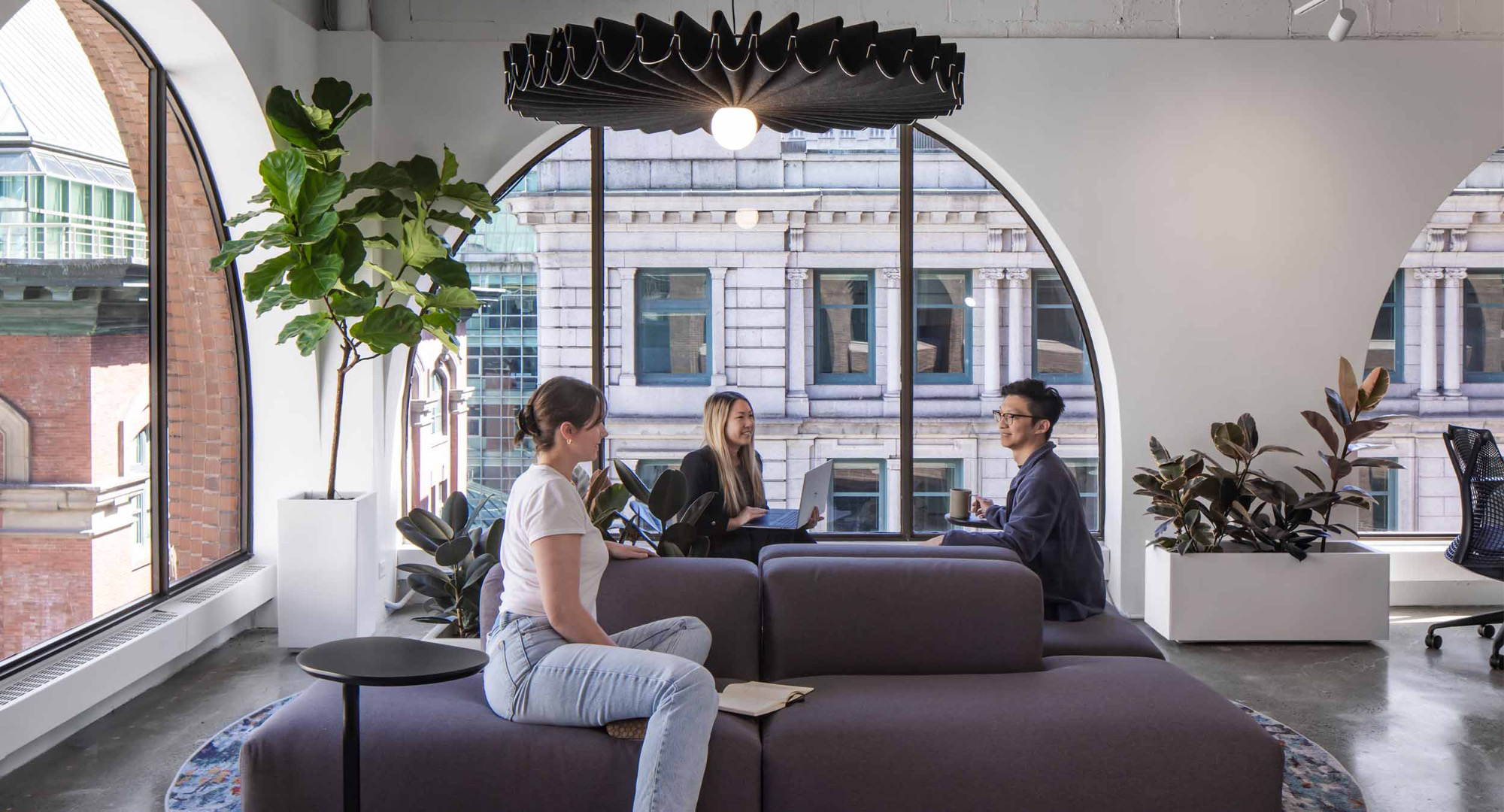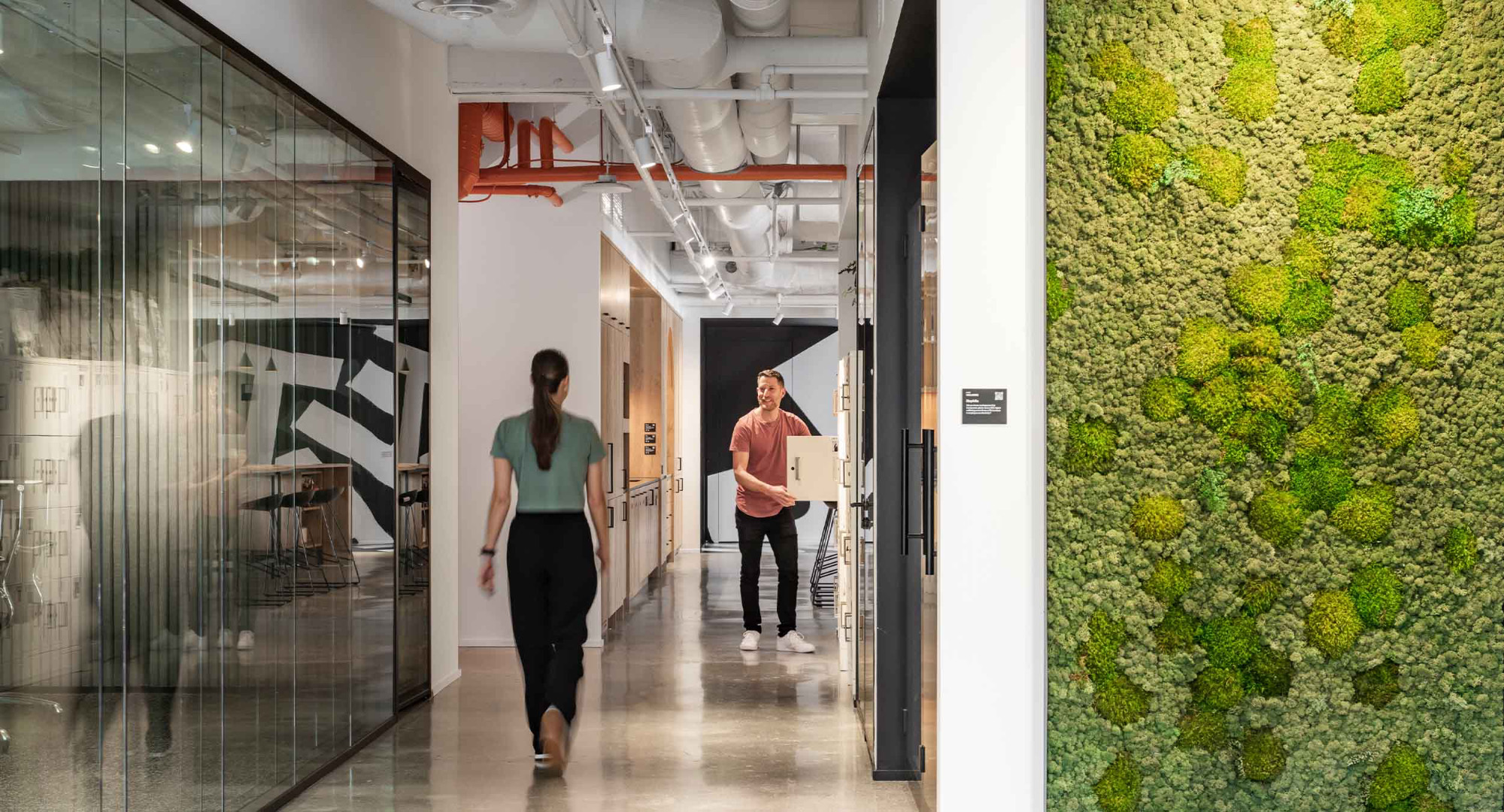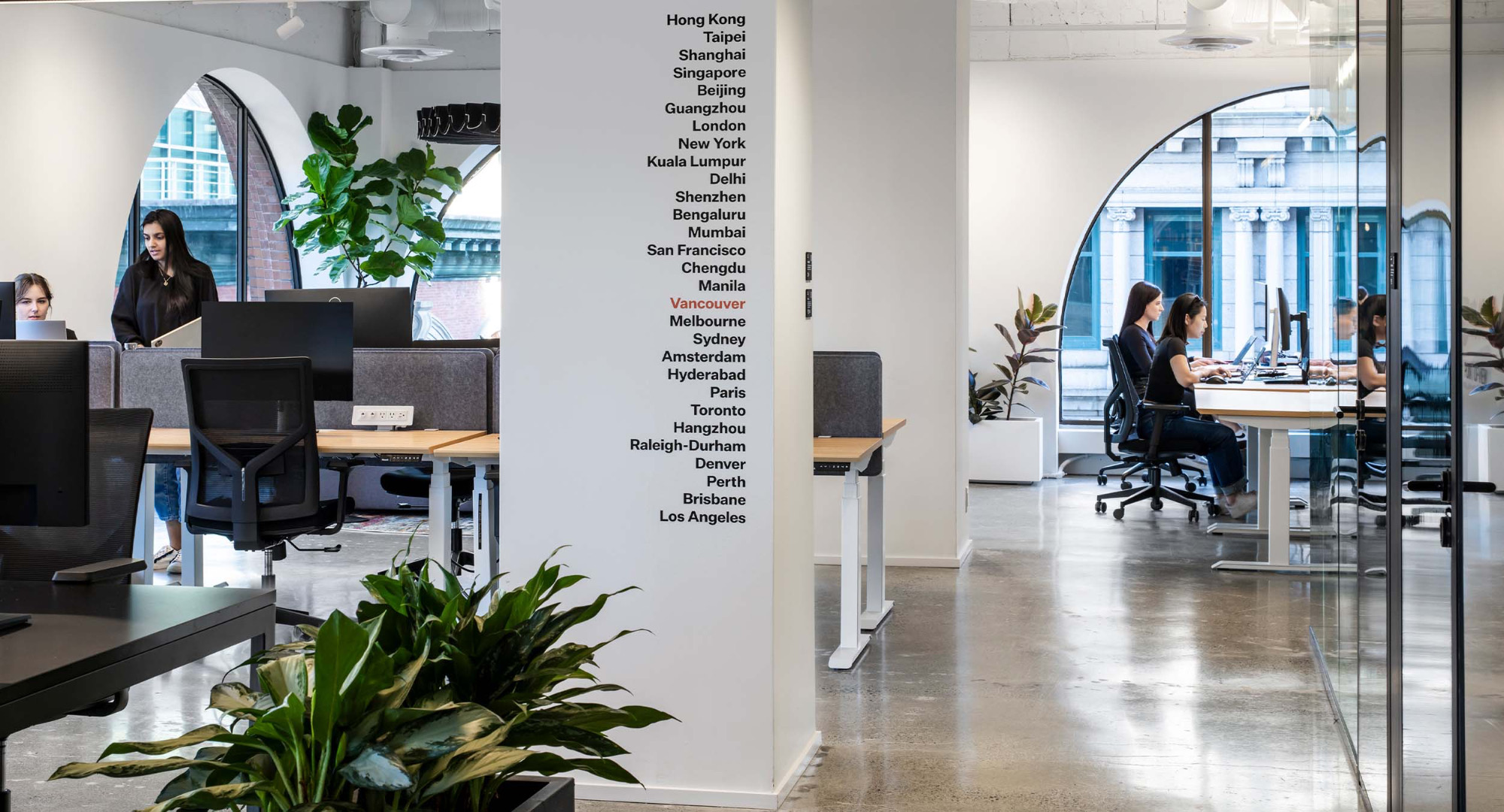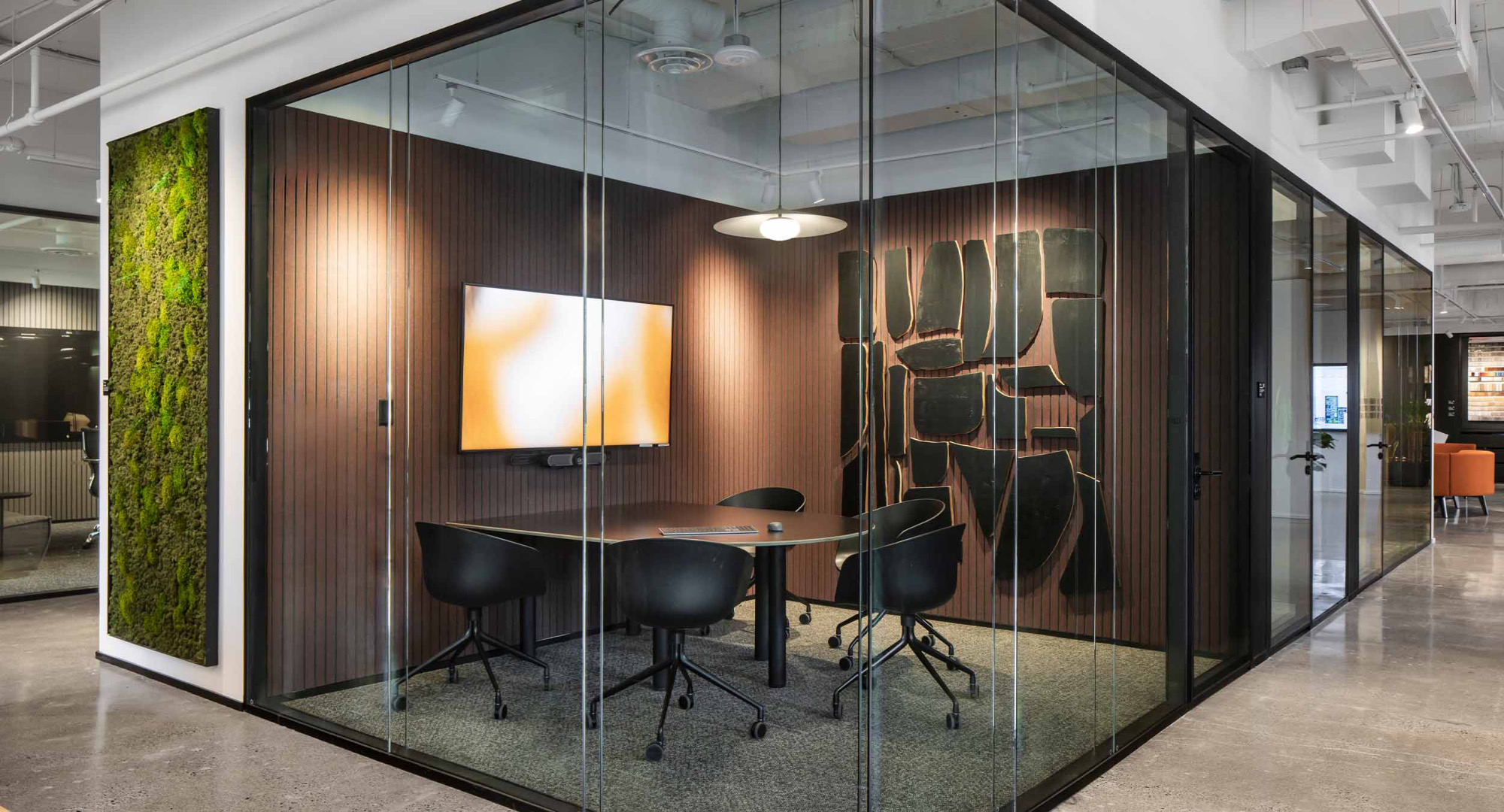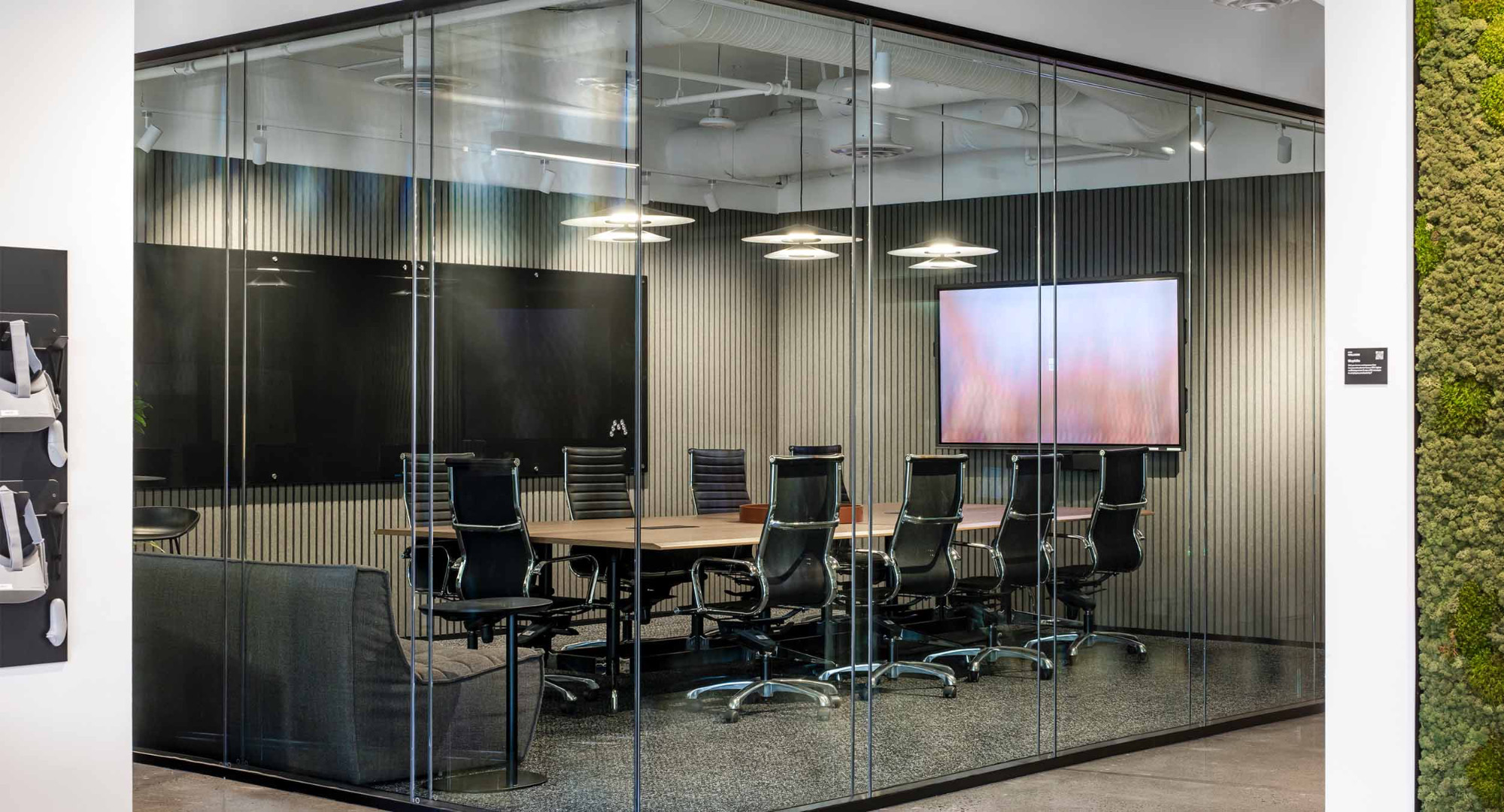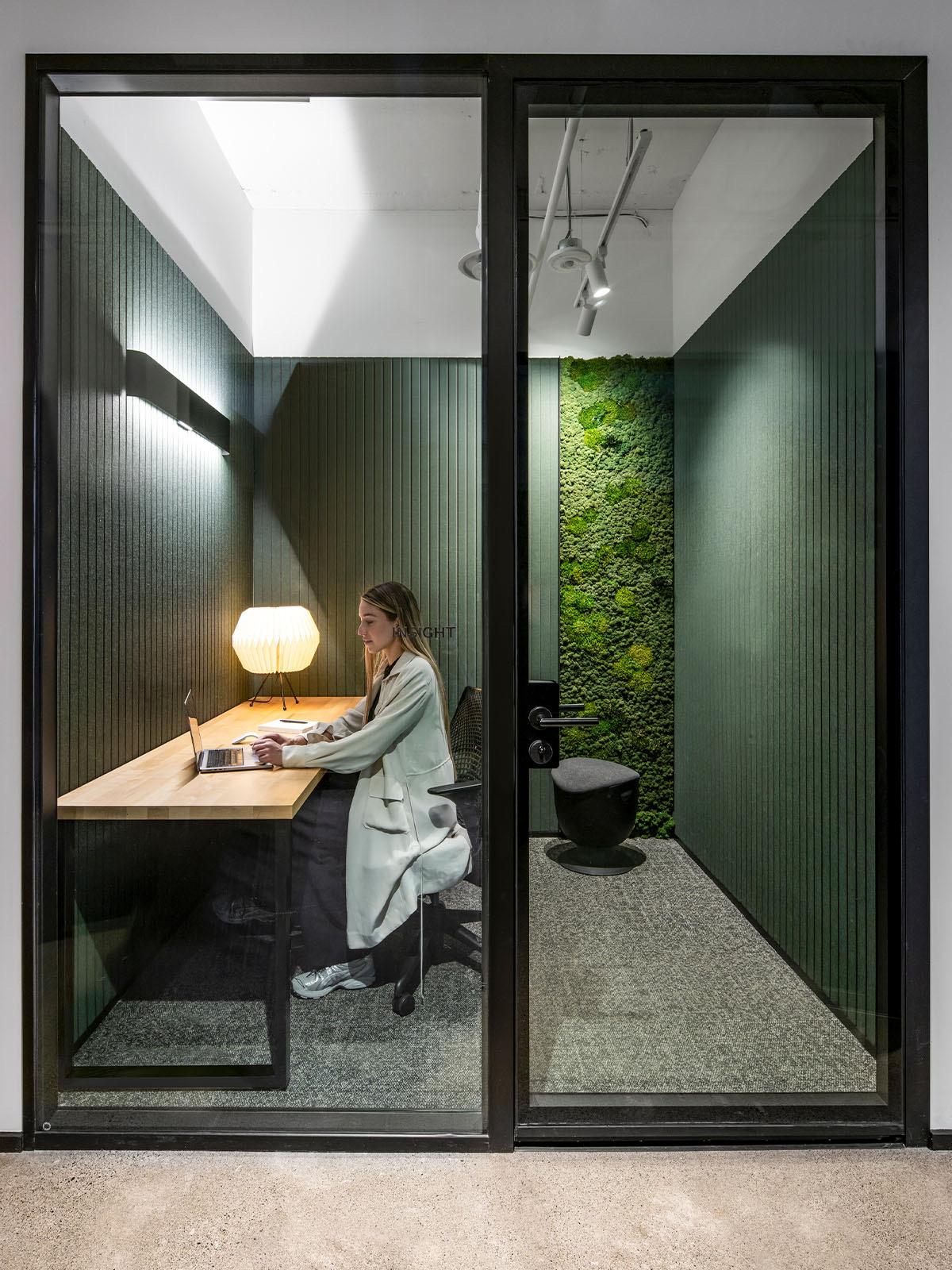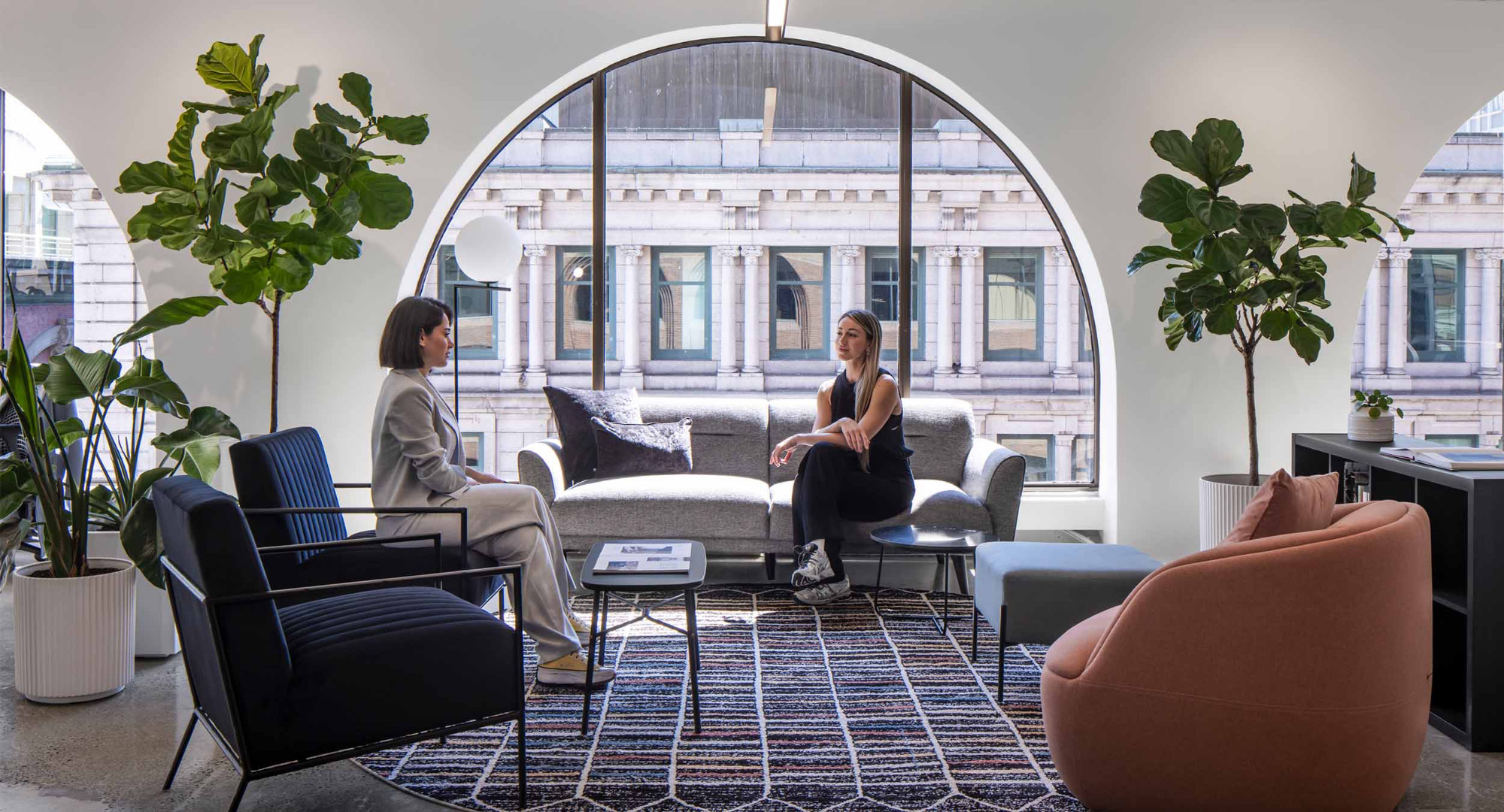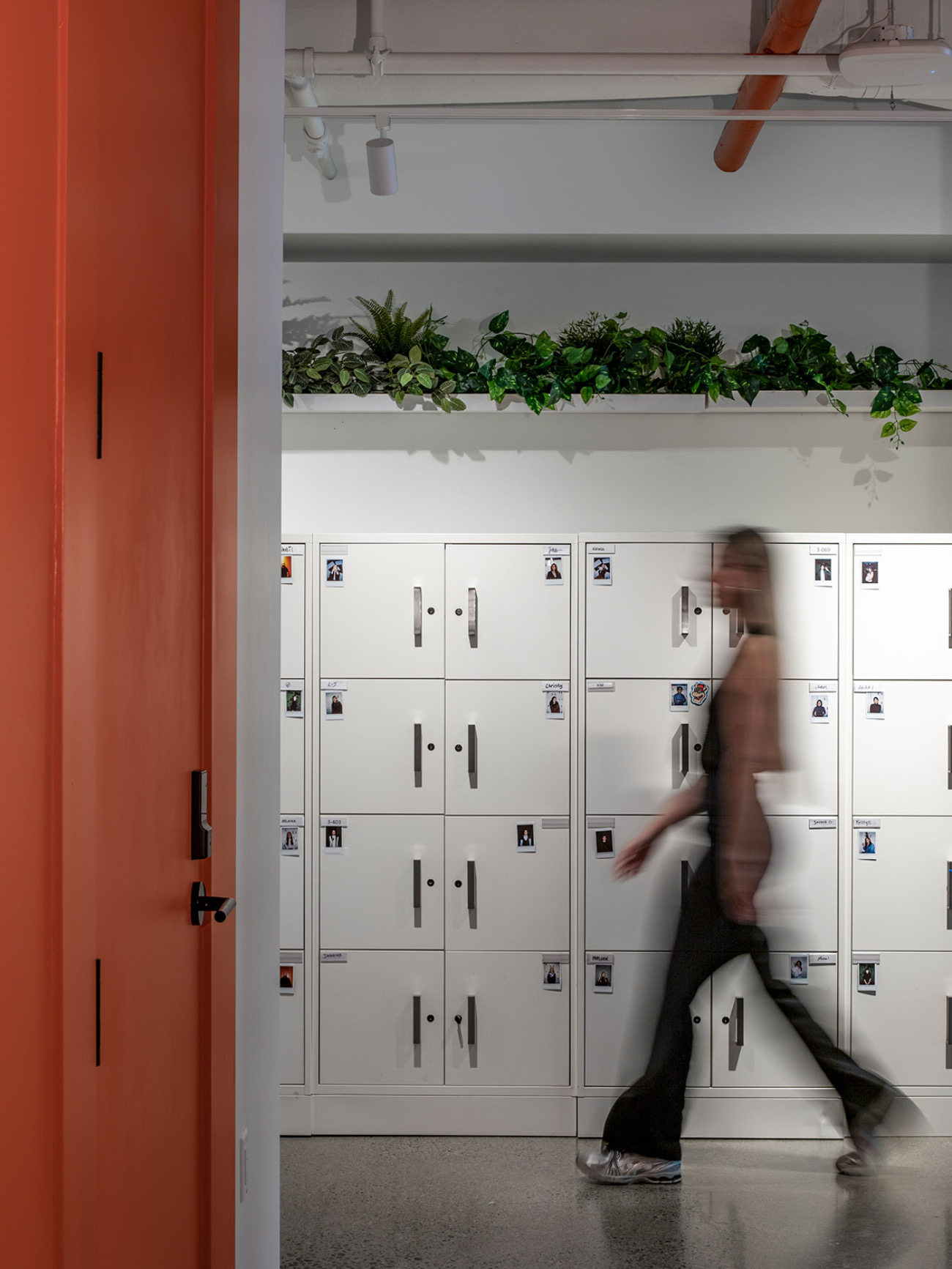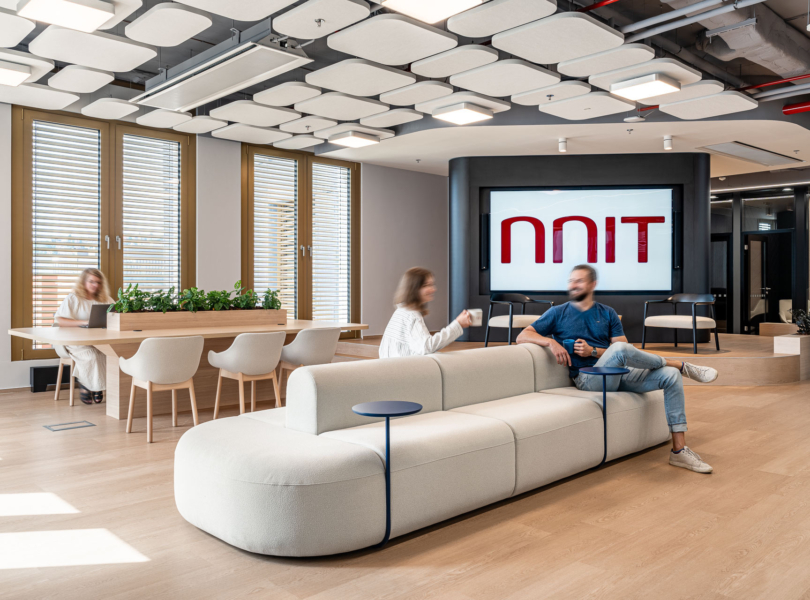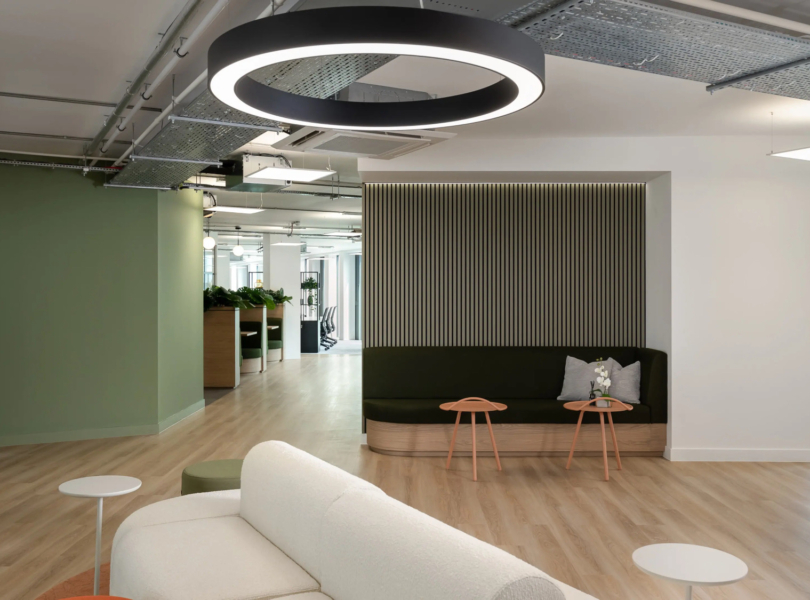A Look Inside M Moser Associates’ New Vancouver Office
Architecture firm M Moser Associates recently opened a new office in Vancouver, Canada which they designed themselves.
“M Moser’s Toronto team designed this workplace to embody an ethos of experimentation, actionable insights and ‘walking the talk’. They did this by incorporating elements like adaptive settings and focusing on employee wellness and ESG goals.
Approach to discovery
The design process was deeply collaborative from the outset. Over ten months, they engaged extensively with our team to understand their needs and how different spaces could support their daily activities. The firm’s previous office was a pilot site where various settings were tested and refined based on feedback. This process enhanced the design of the new space to ensure it supports creativity, collaboration and connectivity.
Diversity of space
Areas are supported by flexible, ergonomic workstations, sound lighting and acoustic interventions. Each space prioritises employee wellness and productivity alongside the client-centric nature of M Moser’s work.
The power of sustainable design choices
The office is on the 11th floor of the Balfour Building, a Toronto landmark and designated heritage building. Adapting to the physical characteristics of the building while striving for net zero certification presented unique opportunities at every turn. To minimise any modifications to the base building, they decided to utilise and work around existing architectural elements, such as the 100-year-old parquet floors, HVAC units and some of the existing partitioning.
The team consciously adapted their approach to align with net zero and WELL principles. They continually questioned the necessity of each addition, sought environmentally conscious alternatives and prioritised the design for adaptability, longevity and recyclability.A shift from the traditional
Traditionally speaking, a designer’s role is typically to overhaul existing spaces completely, discarding elements that don’t align with the new vision. M Moser’s team has intentionally shifted from this mindset in redesigning workspaces. Instead, they leverage existing infrastructure and investments – an approach that resonates deeply across industries. Their approach conserves resources and honours a space’s history and identity, creating a workspace that feels both renewed and familiar. At the same time, this approach enhances initial investments rather than erasing them.
Engaging and adapting
Continuous engagement through surveys and feedback channels has been essential. This ongoing dialogue with employees allows for continuous, iterative changes to the space based on real trials and experiences. For instance, areas found to be underutilised are re-assessed and redesigned to meet team needs better, embodying M Moser’s living lab’s ethos of continual testing and adaptation.
A future-forward direction
The form’s Toronto living lab allows M Moser’s team to reimagine the workplace and reshape the future of work itself. It is a prime example of how thoughtful design, aligned with the needs of people, business and the planet can result in a space that meets current needs and is poised to adapt to future changes.”
- Location: Vancouver, Canada
- Date completed: 2024
- Size: 6,000 square feet
- Design: M Moser Associates
- Photos: Ben Rahn & A-Frame Photography
